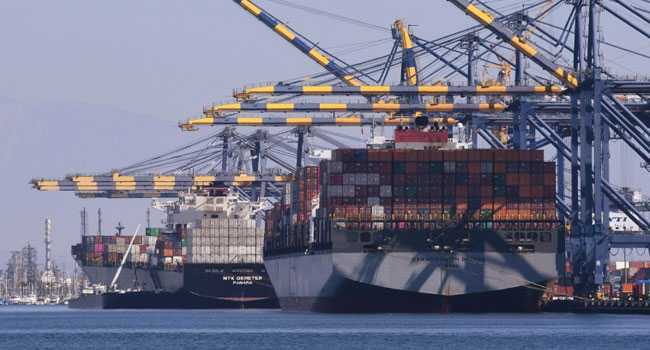Business & Economy
Capital Importation Falls to USD875.62 Million in Q2 2021

Recently released data from the National Bureau of Statistics (NBS) showed that Nigeria’s capital importation plunged by 54.06%, quarter-on-quarter, to USD875.62 million in Q2 2021 (and moderated on a yearly basis by 32.38%). Capital inflow into Nigeria in Q2 2020 still outweighed what was recorded in Q2 2021 despite the sit-at-home order enforced in 2020 by governments of most countries that was meant to curb the spread of the COVID-19 virus.
A breakdown of the Q2 2021 capital imports showed that Foreign Portfolio Investments (FPI), which accounted for 62.97% of the total inflow, declined q-o-q by 43.40% to USD551.37 million (but rose by 43.09% y-o-y). Similarly, Foreign Direct Investments (FDIs), which constituted 8.90%, registered a q-o-q decrease of 49.62% to USD77.97 million (and fell by 47.52% y-o-y) amid investor’s apathy due to the worsening insecurity.
Other investments (mainly comprised of Foreign Loans and other claims), which constituted 28.13%, tanked q-o-q by 63.80% to USD246.67 million (and fell by 67.64% y-o-y). A more detailed analysis of FPIs’ investment in Nigeria revealed that more funds went into the money market space as it accounted for 81.92%; while investments in shares and bonds accounted for 15.45% and 2.64% respectively.
Notably, capital inflows from Equities FPIs increased by 216.84% q-o-q (and rose y-o-y by 59.93%) to USD85.16 million in Q2 2021. FPIs investment in Bonds, decreased by 89.52 % q-o-q (but rose y-o-y) to USD14.54 million, while investment inflows by FPIs in Money market instruments tumbled by 44.14% q-o-q (but increased by 36.02% y-o-y) to USD451.67 million in Q2 2021. Meanwhile, Foreign Loans (the largest component of other investments) nosedived by 72.40% q-o-q (and fell by 71.11% y-o-y) to USD209.77 million in Q2 2021.
Notably, Banking (33.86%), Financing (23.51%), Shares (22.22%), Production (7.77%) and Trading (5.73%) sectors were the largest recipients of the foreign capital injection from the United Kingdom (USD310.26 mn) and South Africa (USD212.39 mn). In another development, at the Monetary Policy Committee (MPC) held on Monday and Tuesday, 26 and 27 July 2021, members observed the abuse of regulations by BDC operators and frowned at their excessive rent-seeking behaviours and therefore moved to arrest the situation.
Consequently, members decided that: CBN stopped forex sales to BDC operators, suspend licensing of more BDCs in the country and re-channel forex sales to commercial banks to meet PTA, BTA needs of customers. In addition, Commercial banks were required to dedicate teller points in every branch for the sale of forex to customers while Customers were urged to report banks that failed to sell forex to them despite providing required documentation.
Cowry Research notes that insecurity, exchange rate volatility and high costs of doing business in Nigeria have done a major disservice to foreign investment into the country, hence the continuing decline in capital importation and the external reserves. Importantly, the bulk of the responsibility to restore investors’ confidence rest on the fiscal authority, more than the monetary authority, given the nature of the challenges.
Hence, we expect FG to further quicken its efforts at resolving insecurity issues, create a more business-friendly environment, and initiate private partnership arrangements to bridge the infrastructure gap, in order to boost productivity and better position exporters to reap the benefits of AfCFTA.
Meanwhile, the MPC’s decision to stop US dollar sales to BDCs may, in the short term, lead to a shortage of supply to the parallel market where unfilled genuine demand at the official window and speculative demand is sought from. Thus, we expect a wider disparity between the official market rate and the parallel market rate in the new week.









